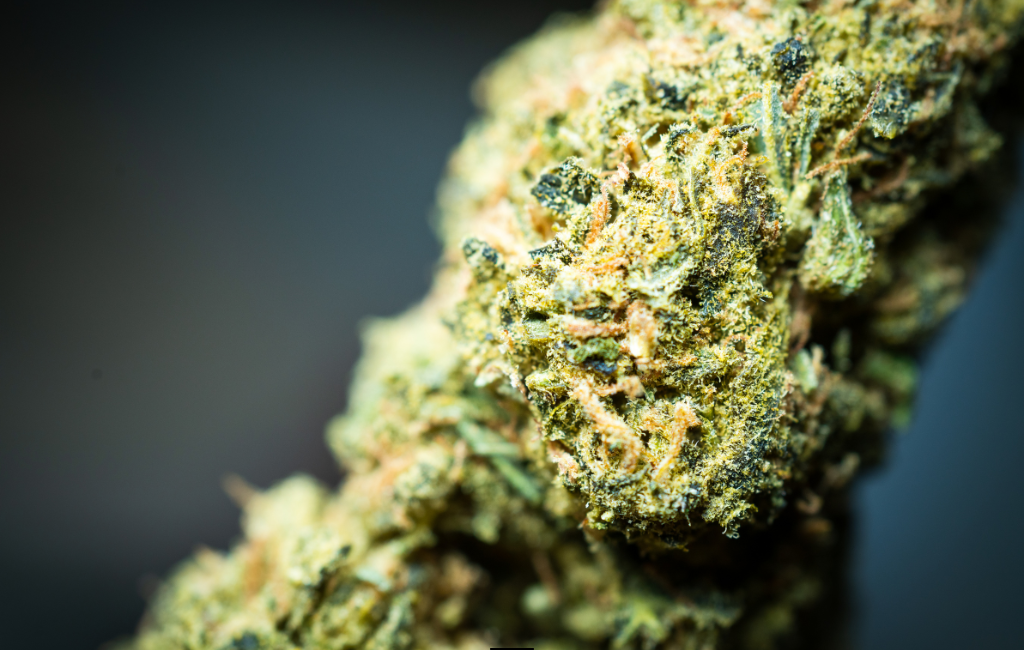The Duty of THCA in Cannabinoid Therapy
Introduction
As the globe of cannabinoid therapy remains to develop, a compound that has gained considerable focus is THCA (tetrahydrocannabinolic acid). This non-psychoactive precursor to THC (tetrahydrocannabinol) is often outweighed by its more well-known counterpart. Nonetheless, comprehending THCA’s function in cannabinoid therapy can unlock new methods for therapy and wellness.
In this detailed post, we’ll explore everything you require to learn about THCA– from what it is and its benefits to prospective adverse effects and dosage guidelines. Whether you’re an experienced cannabis customer or simply interested regarding the restorative possibility of cannabinoids, this overview will give valuable understandings right into The Duty of THCA in Cannabinoid Therapy
What is THCA?
Understanding THCA: The Basics
So, what is THCA? It’s a normally happening substance located in the cannabis plant. When cannabis is gathered, it has THCA in its raw kind. Unlike THC, which creates psychoactive impacts when warmed (or decarboxylated), THCA remains non-intoxicating in its all-natural state. This characteristic makes it a fascinating candidate for healing applications without the high typically related to marijuana consumption.
THCA Flower: A Natural Source
If you’re looking to experience the advantages of THCA, among the most effective ways to do so is with THCA flower This unprocessed marijuana blossom retains its full spectrum of cannabinoids and terpenes, permitting customers to experience the plant’s recovery residential or commercial properties. Lots of favor raw or freshly harvested cannabis over processed forms because it provides a much more all natural strategy to wellness.
THCA Benefits: Why Think About It?
Anti-Inflammatory Properties
One of the standout benefits of THCA hinges on its anti-inflammatory residential or commercial properties. Research study suggests that this substance can help reduce swelling throughout the body, making it possibly valuable for problems like arthritis and autoimmune conditions. By minimizing swelling, individuals why doesn’t nicotine give me a buzz may experience less pain and discomfort.
Neuroprotective Effects
Another encouraging area of research concentrates on THCA’s neuroprotective effects. Preliminary studies indicate that this substance might have safety high qualities for mind cells, potentially assisting those with neurodegenerative illness such as Alzheimer’s and Parkinson’s disease.
Nausea Relief
For those undertaking treatments like chemotherapy, queasiness can be an incapacitating adverse effects. Some anecdotal reports recommend that THCA can assist ease sensations of queasiness without altering one’s mindset, allowing patients to preserve their daily activities without disruption.
Exploring Fringe benefits of THCA
Appetite Stimulation
While THC is widely known for generating hunger (the “munchies”), research studies have shown that THCA might also contribute in promoting appetite– a necessary element for individuals dealing with problems that impact eating habits.
Potential Anti-Cancer Properties
Emerging research study has indicated that compounds located in marijuana– consisting of THCA– may exhibit anti-cancer residential or commercial properties by hindering tumor development and causing apoptosis (configured cell fatality) in particular cancer cells. While more research study is needed, these searchings for hold assurance for future cancer cells therapies.
Mood Regulation
Some customers report mood-enhancing take advantage of taking in raw cannabis high in THCA. Though more clinical researches are required to develop conclusive conclusions, preliminary searchings for recommend that this substance may play a role in controling tension and anxiety levels.
Are There Negative effects Related To THCA?
What Are Prospective Side Effects?
While many people tolerate THCA well, it’s important to note that every person’s body responds in different ways. Some potential side effects could include:
- Mild gastrointestinal issues
- Headaches
- Allergic reactions (in rare instances)
Being familiar with these opportunities is essential prior to incorporating any brand-new substance right into your wellness routine.
THCA Dosage: How Much Must You Take?
Finding Your Perfect Dosage
Determining an ideal dosage for THCA can rely on numerous variables including:
It’s constantly smart to begin low and go slow-moving– beginning with small amounts enables you to determine your body’s action prior to increasing your dose if needed.
The Duty of THCA in Cannabinoid Treatment: A Restorative Perspective
Understanding the therapeutic capacity of cannabinoids like THCA can reshape how we see therapy options for various health and wellness worries. As research remains to emerge around cannabinoid therapy, it’s ending up being progressively clear that each element plays a special function in promoting wellness.
By prioritizing plant-based treatments like those having THCA– alongside conventional clinical therapies– patients may discover more tailored methods to handling their health problems effectively.
FAQs concerning THCA
1. Just what is the distinction between THC and THCA?
THC (tetrahydrocannabinol) generates psychedelic results when eaten or heated up, while thca continues to be non-psychoactive in its natural kind until decarboxylated with warmth or aging processes.
2. Can I get high from eating thca flower?
No, eating thca blossom will certainly not generate psychoactive impacts as long as it continues to be unheated or uncooked.
3. Exactly how do I consume thca?
You can take in thca through raw cannabis juice or smoothie mixes made with fresh fallen leaves and flowers or incorporate it into salads and various other recipes where warm isn’t applied.
4. Are there any type of risks related to thca usage?
While generally taken into consideration secure for most individuals when eaten sensibly, some might experience light adverse effects such as migraines or gastrointestinal discomfort.
5. Is there ongoing research on thca?
Yes! Ongoing research studies are discovering the complete variety of healing advantages provided by thca consisting of potential anti-cancer properties amongst others!
6. Exactly how need to I save thca flower?
Store your thca blossom in an airtight container away from lights at room temperature for ideal freshness!
Conclusion: Accepting The Duty of THCA in Cannabinoid Therapy
In closing, understanding The Duty of THCA in Cannabinoid Therapy opens up doors not only for patients looking for choices yet also includes deepness to our comprehension of exactly how cannabinoids engage within our bodies for recovery functions! As research proceeds right into this fascinating substance– a wealth waits for those excited enough to explore its potential!
With focus turning in the direction of all-natural treatments amid expanding passion bordering holistic wellness practices– the moment has actually never ever been much better than currently– to dive deeper right into comprehending what compounds like thca produce relating to cellular equilibrium & & overall wellness!
So whether you’re already familiar with cannabinoids or taking your initial step right into this arising field– we hope this overview clarifies all elements bordering thca, motivating interest & & encouraging further exploration along your journey toward boosted health and wellness & & vitality!
-
Table of Contents
THCA Flower: Uses and Benefits in Wellness
THCA, or tetrahydrocannabinolic acid, is a non-psychoactive cannabinoid found in raw and live cannabis. Unlike THC, THCA does not produce a high, making it an attractive option for those seeking the therapeutic benefits of cannabis without the psychoactive effects. This article explores the uses and benefits of THCA flower in wellness, supported by research, examples, and case studies.
Understanding THCA
THCA is the acidic precursor to THC. When cannabis is heated through smoking, vaping, or cooking, THCA converts to THC, the compound responsible for the psychoactive effects. In its raw form, THCA offers a range of potential health benefits without altering mental state.
How THCA Works
THCA interacts with the body’s endocannabinoid system (ECS), which plays a role in regulating various physiological processes such as mood, appetite, and pain sensation. By binding to cannabinoid receptors, THCA can influence these processes, contributing to its therapeutic potential.
Health Benefits of THCA Flower
Research and anecdotal evidence suggest that THCA may offer several health benefits. Here are some of the key areas where THCA flower can be beneficial:
- Anti-inflammatory Properties: THCA has shown promise in reducing inflammation, which can be beneficial for conditions like arthritis and inflammatory bowel disease.
- Neuroprotective Effects: Studies indicate that THCA may help protect brain cells, potentially offering benefits for neurodegenerative diseases such as Alzheimer’s and Parkinson’s.
- Anti-emetic Effects: THCA may help reduce nausea and vomiting, making it useful for patients undergoing chemotherapy or those with chronic conditions that cause nausea.
- Antioxidant Properties: THCA has antioxidant properties that can help protect cells from damage caused by free radicals.
Case Studies and Research
Several studies have explored the potential benefits of THCA. For instance, a 2013 study published in the British Journal of Pharmacology found that THCA exhibited anti-inflammatory properties in animal models. Another study in 2017 highlighted THCA’s potential neuroprotective effects, suggesting it could be beneficial for neurodegenerative diseases.
Anecdotal evidence also supports the therapeutic potential of THCA. Patients with chronic pain, inflammation, and nausea have reported significant improvements in their symptoms after using THCA-rich products.
Uses of THCA Flower in Wellness
THCA flower can be incorporated into wellness routines in various ways. Here are some popular methods:
- Juicing: Fresh cannabis leaves and flowers can be juiced to create a nutrient-rich beverage that retains the THCA content.
- Topicals: THCA-infused creams and balms can be applied directly to the skin to target localized pain and inflammation.
- Tinctures: THCA tinctures can be taken sublingually (under the tongue) for quick absorption and systemic effects.
- Capsules: THCA capsules offer a convenient way to consume a precise dose of THCA without the need for preparation.
Examples of THCA Products
The market offers a variety of THCA-rich products designed to cater to different preferences and needs. Some popular options include:
- Raw Cannabis Juice: Available at some dispensaries, raw cannabis juice is made from fresh cannabis leaves and flowers, preserving the THCA content.
- THCA Tinctures: These liquid extracts can be taken sublingually or added to food and beverages.
- THCA Topicals: Creams, balms, and salves infused with THCA can be applied to the skin for localized relief.
- THCA Capsules: Pre-measured capsules provide a convenient and discreet way to consume THCA.
Potential Side Effects and Considerations
While THCA is generally considered safe, some individuals may experience side effects. These can include dry mouth, dizziness, and gastrointestinal discomfort. It’s advisable to start with a low dose and gradually increase it to find the optimal amount for your needs.
Consulting with a healthcare professional before incorporating THCA into your wellness routine is recommended, especially if you have underlying health conditions or are taking other medications.
Conclusion
THCA flower offers a range of potential health benefits, from reducing inflammation and protecting brain cells to alleviating nausea and providing antioxidant support. With various consumption methods available, including juicing, topicals, tinctures, and capsules, THCA can be easily integrated into wellness routines. While more research is needed to fully understand its therapeutic potential, existing studies and anecdotal evidence suggest that THCA is a promising option for those seeking the benefits of cannabis without the psychoactive effects.

